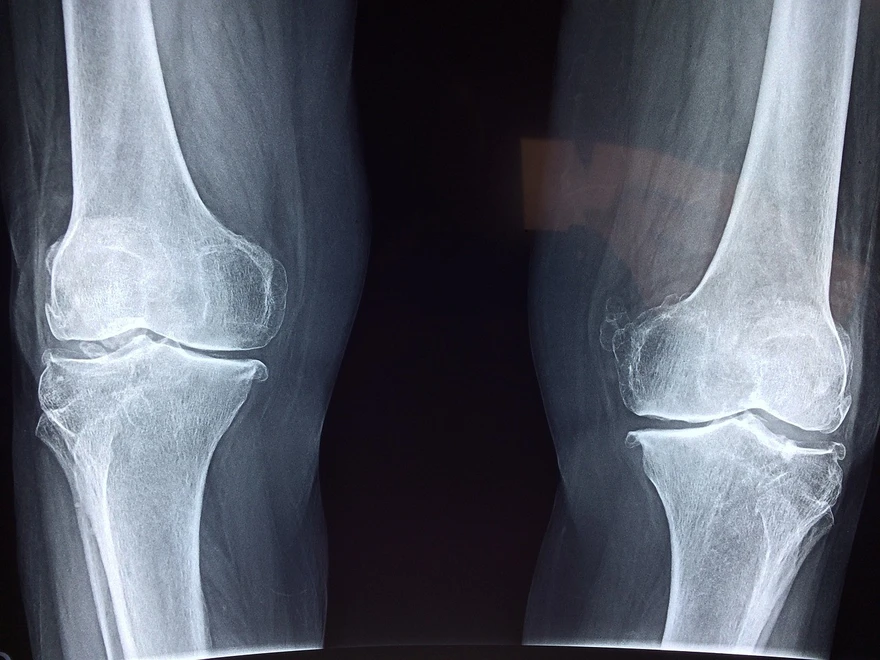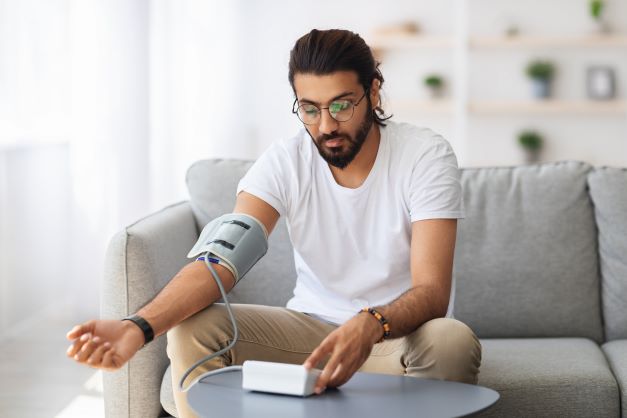Preventive Healthcare
How to Reduce Body Heat: 10 Science-Backed Ways to Stay Cool This Summer

Table of Contents
Feeling overheated during summer is more common than you might think, and it's perfectly normal to seek relief. While your normal body temperature stays fairly steady, hot weather, stress, or certain foods can make you feel warmer than usual. If you’re looking for simple, science-backed tips on how to reduce body heat, you’re in the right place.
This guide offers practical solutions to help you or your loved ones stay cool and comfortable—all without stress or complicated steps. Let’s explore what really works.
Reasons Body Temperature May Rise
Feeling unusually warm can make you anxious, especially when it seems out of the blue. Thankfully, there are many everyday reasons for a rise in body heat, and most of them aren’t serious.
Here are some common causes of rising body heat:
- Hot weather or high humidity: Summer temperatures and poor ventilation can easily raise your internal body heat, making you feel flushed or sweaty. When your body can't release heat effectively, you may overheat.
- Physical activity: Even simple tasks can increase your body heat, especially if you're already warm or tired. Exercise raises metabolism, which naturally produces more heat.
- Spicy or hot foods: Meals high in spices or caffeine can temporarily raise body heat, especially when consumed in hot weather. These foods stimulate thermogenesis—a process that heats up your body.
- Dehydration: Not drinking enough water affects your body's cooling mechanism. A lack of fluids can prevent sweat production, making it harder for your body to release excessive body heat.
- Illness or infection: Fever is the body’s natural way of fighting infections, and it can cause noticeable spikes in body heat. If you're unwell, monitor any other symptoms too.
- Stress and anxiety: Emotional stress can make your skin feel warm or flushed. Your body responds to stress by increasing circulation and body heat.
10 Science-Backed Ways to Reduce Body Heat this Summer
When you're feeling uncomfortably warm, it's reassuring to know that there are effective, simple ways to cool down. Let’s check out science-supported tips that show you how to reduce body heat safely and gently.
- Drink more water throughout the day: Staying hydrated supports your body’s natural cooling system. Water helps regulate body heat by promoting sweat and urination. Try to sip cool water regularly rather than drinking large amounts at once.
- Eat cooling foods like cucumbers and watermelon: Certain fruits and vegetables naturally reduce body heat. Water-rich foods like melon, celery, and citrus fruits also aid digestion and hydrate you from the inside out.
- Take cool showers or baths: A short shower with lukewarm to cool water can bring quick relief. It helps reduce surface temperature and soothes the feeling of excessive body heat almost instantly.
- Wear light, breathable clothing: Choose cotton or moisture-wicking fabrics that allow air circulation. Tight or synthetic clothing traps body heat and can make you feel hotter and more uncomfortable.
- Avoid peak sun hours (11am–3pm): Limiting sun exposure during midday reduces the risk of overheating. If you must go out, wear a wide-brimmed hat and carry water.
- Use fans or cooling devices indoors: Air circulation plays a big part in controlling body heat. Using a fan or even a damp cloth on your neck or wrists can offer immediate cooling effects.
- Practise deep breathing or meditation: Stress-induced body heat can be reduced with calming techniques. Breathing slowly and mindfully helps lower your heart rate and cools your body gently.
- Limit alcohol and caffeine: Both substances can contribute to dehydration and raise body heat. Switching to herbal teas or diluted juices can be much more refreshing in the heat.
- Adjust your sleep environment: Use breathable sheets, sleep in a cooler room, and keep curtains closed during the day. Sleep is often disturbed by body heat, so a cooler setting helps you rest better.
- Include buttermilk or coconut water in your diet: These natural beverages are known for their cooling properties. Rich in electrolytes, they not only hydrate you but also lower body heat gently and effectively.
Normal Body Temperature for Different Demographics
Your normal body temperature can vary slightly depending on your age, activity level, and time of day. Knowing what's typical for your age group can help you better understand changes in body heat.
|
Demographic |
Normal Body Temperature Range |
|
Infants and toddlers |
36.6°C – 38.0°C |
|
Children |
36.1°C – 37.8°C |
|
Adults |
36.1°C – 37.2°C |
|
Older adults (65+) |
35.8°C – 36.9°C |
Even small increases may feel more intense during summer, but they’re usually manageable with the right steps.
When to See a Doctor?
While many causes of rising body heat are temporary and not dangerous, it's important to know when to seek help. If you’re unsure or symptoms persist, it’s always okay to reach out for medical advice.
Here are signs that may indicate it's time to speak to a healthcare provider:
- You experience ongoing fatigue or dizziness: These can signal that your body isn’t coping well with excessive body heat and may be becoming dehydrated or heat-stressed.
- You’re not sweating, even though it’s hot: Sweat helps release body heat. If you’ve stopped sweating despite feeling hot, you may be at risk of heat exhaustion or heatstroke.
- You notice confusion, a fast pulse, or nausea: These are more serious body heat symptoms that can mean your internal systems are struggling. These signs should never be ignored.
- High temperature lasts longer than 48 hours: If your body heat remains elevated for more than two days and doesn’t respond to cooling efforts, medical support is a wise choice.
- Your child or elderly relative shows unusual symptoms: Children and older adults are more vulnerable to heat-related issues. Monitor them closely, especially during very warm days.
Conclusion
Staying cool in summer doesn’t need to be complicated. With the right habits and awareness, you can manage body heat naturally and comfortably. These science-backed tips offer gentle, practical ways for anyone wondering how to reduce body heat.
For personalised insights or if symptoms persist, we recommend Metropolis Healthcare—a trusted name offering accurate diagnostic tests and home visit services to help you monitor your health with ease and confidence.
FAQs
Which food reduces body heat?
Cucumber, watermelon, mint, and leafy greens help reduce body heat due to their cooling properties.
Which drink will reduce heat?
Coconut water, buttermilk, and lemon water effectively reduce body heat and keep you hydrated.
Can stress increase body heat?
Yes, stress triggers hormonal changes that can raise body heat and cause flushing or sweating.
What are the main symptoms of excessive body heat?
Common body heat symptoms include sweating, fatigue, dizziness, dry mouth, and a warm skin sensation.
Are there any quick hacks to cool down instantly?
Apply cold compresses, drink cool water, and rest in shade to lower body heat quickly.



1744887454.webp)






































